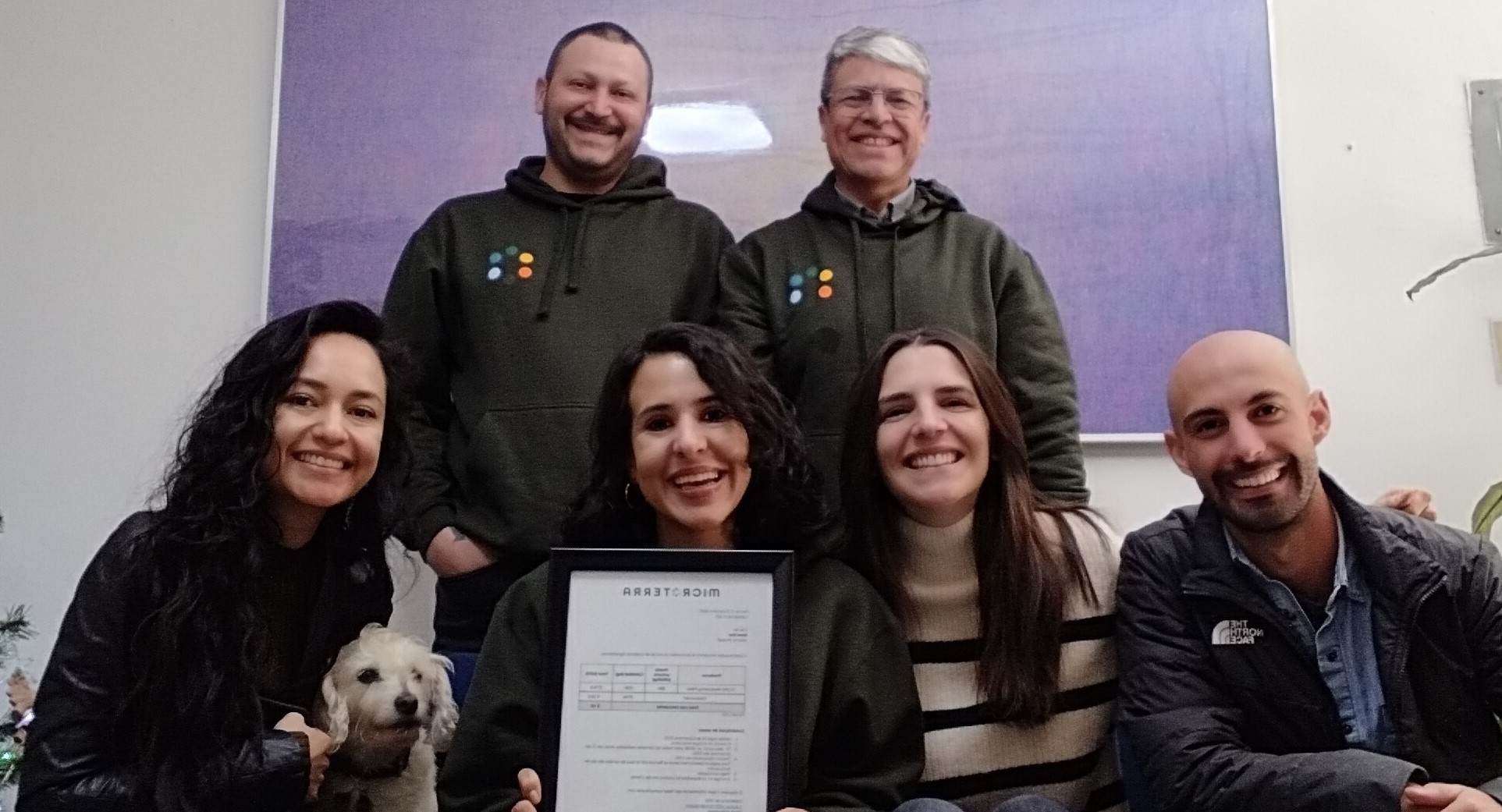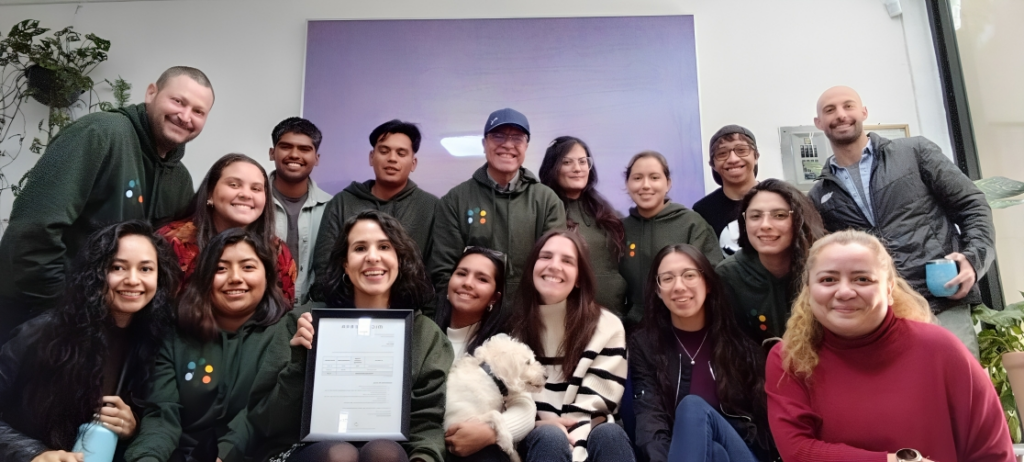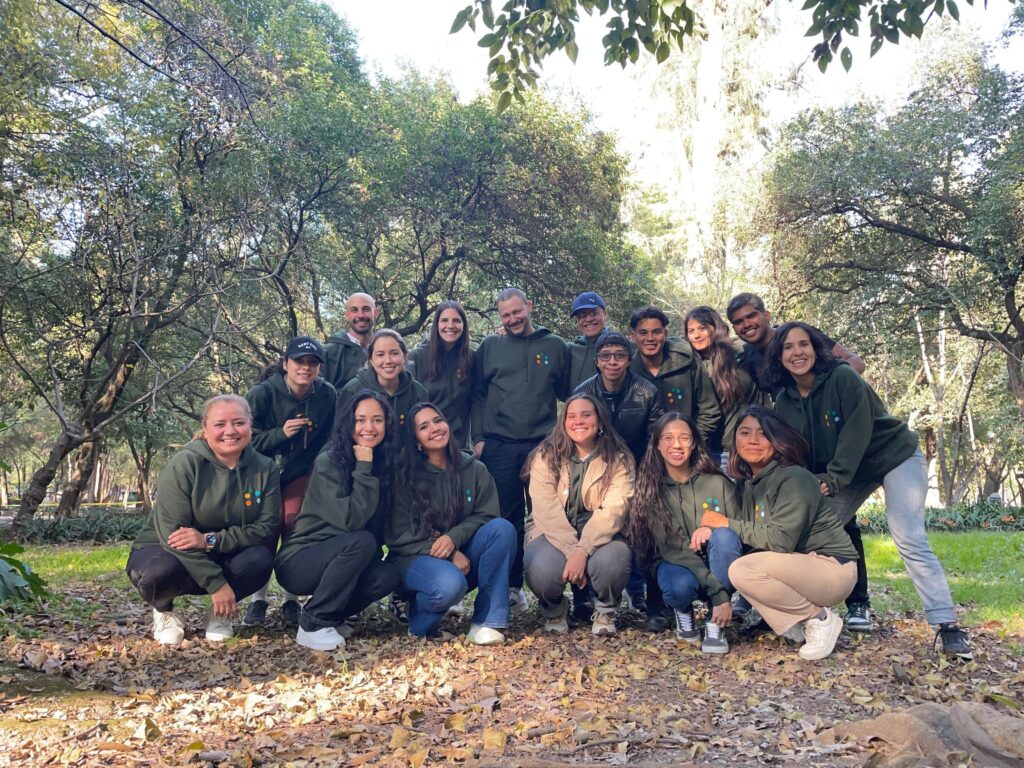Meet Marissa from microTERRA
Q: Could you introduce yourself and share a bit about your startup?
A: My name is Marissa Cuevas, and I’m the CEO and founder of Microterra. At Microterra, we focus on upcycling wastewater from agriculture using a tiny aquatic plant called Lemna. Our unique process transforms Lemna into high-value ingredients, such as flavor modulators or sweet potentiators, which we then sell back to the food industry. Essentially, we operate as a circular economy business, turning wastewater into valuable ingredients.
Why IndieBio?
Q: What motivated you to join IndieBio, especially considering your pivot? Can you walk us through the application process?
A: I had already made a pivot, but lacked the resources to prove its viability. When IndieBio invited us to join the accelerator, I had little more than a PowerPoint. I had data points supporting my direction but needed more tangible proof. That’s when they offered us the investment and acceleration program.
Q: Could you share your experience with the application process?
A: In our case, Rodrigo Mayo, a well-known VC, was my first contact. A friend recommended him, emphasizing his intelligence. After discussions, he recognized my rapid learning pace as a crucial entrepreneurial trait. He decided to bet on my ability to learn and recommended joining IndieBio.
Later on, I don’t recall if we had to interview Stephen and Alex, the New York IndieBio program leaders. However, the process became clear to me, and I saw it as my opportunity. IndieBio’s coaching and support provided the leverage to raise additional funds, prove our hypothesis in six months, and then seek further rounds.
Q: Can you clarify the funding aspect of IndieBio? How does the investment work for admitted startups?
A: Yes, that’s the IndieBio deal. It’s an open arrangement, and you can easily find details online. To the best of my recollection, it involved a $250,000 investment, with $50,000 allocated for the program cost. Essentially, startups receive $200,000, and IndieBio takes 8% from preferred stocks. It might sound intense, but the platform and opportunities they provided were certainly worth it.
Q: Could you describe a typical day in the IndieBio program?
A: Fortunately, during the 2019 Techstar Sustainability program, I learned the value of moving the CEO and management team to a different location. However, this disruption is more beneficial for software than hardware or food tech. Luckily, in 2021, amidst the pandemic, I didn’t have to relocate to New York, which wouldn’t have suited my work with farmers and food labs. The online program proved beneficial, exposing me to transformative insights. Initially focused on water cleaning, IndieBio’s network introduced me to the booming field of food tech. The program provided mentors, experts, and advisors, creating an invaluable network. Being part of this community allowed me to reassess my initial business idea of selling Lemna as animal feedstock and pivot toward high-value food ingredients.
Standout Features and Post-Accelerator Support
Q: What stood out to you as a remarkable feature of the IndieBio program?
A: One standout feature was a simulated board meeting, a brief yet intense session where I had to prove our progress within one or two weeks using just a couple of PowerPoint slides. It offered a valuable glimpse into decision-making and execution under scrutiny. Additionally, meetings exclusively with CTOs allowed a refreshing focus on the complexities of biological systems, acknowledging the longer development times in fields like biotech.
Q: Were there any aspects that were underwhelming or areas you think could have been improved besides the online format?
A: After the program, I moved to New York for a month, bridging the distance and strengthening relationships. However, post-program support on how they could continue helping was something I felt lacked a bit. Nevertheless, they’ve evolved since, and my new point of contact has been proactive in providing connections and support.
Q: Do you believe your current success can be attributed in part to graduating from IndieBio?
A: IndieBio played a crucial role in redirecting our company toward food tech. The expertise, mentors, and networking opportunities were life-changing. Our successful seed round, in particular, owes a lot to IndieBio. As we approach another round, I’m exploring how to leverage this network further.
Q: How has IndieBio supported you post-accelerator?
A: They have indeed continued their support. With a changed program monitor, we’ve developed a tight relationship. I can reach out for introductions now that our product is ready, and they provide high-level connections, making them just an email away. They even assisted with arrangements for a tasting event, contributing to our successful funding round.
Advice for Applying to Accelerator Programs
Q: Any final advice for those considering applying to IndieBio or other accelerator programs?
A: Yes, and it’s a two-fold responsibility. Firstly, be proactive in seeking what you can gain from the program. Clearly articulate your needs, request introductions, and actively engage in the process. Recognize that the accelerator is working with multiple companies, making it crucial for you to take the initiative. Secondly, learn to discern which aspects of the program are truly relevant to your company. Accelerator programs are not one-size-fits-all, so while asking for what you need, also set clear boundaries. Be vocal about your priorities and where the program aligns or doesn’t align with your company’s current stage. It’s about actively participating, being transparent, and knowing when to set limits to protect your team’s focus and energy.



